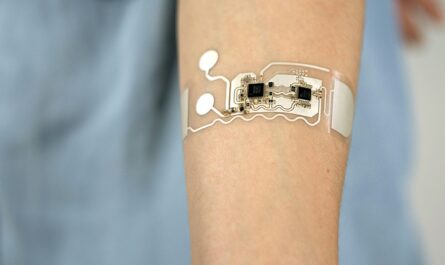What are TCM Services?
TCM services are important medical services provided to Medicare patients during transitions between care settings like from hospital to home or home to skilled nursing facility. They help ensure coordination of care and prevent medical errors or unplanned readmissions.
Key Aspects of TCM Services
Communication and Exchange of Patient Information
Transitioning between care settings often involves multiple healthcare providers. Transitional Care Management Services facilitate the exchange of important clinical information like diagnosis, treatment plans, medications and pending tests/follow ups between facilities and providers. This communication helps establish a continuity of care.
Medication Reconciliation
Changes in medication regimens are common during transitions. Transitional Care Management Services include reviewing all medications, over-the-counter drugs and supplements to reconcile medications and therapy plans. This helps address duplications or dosing errors to prevent adverse reactions.
Timely Follow Up After Discharge
TCM includes monitoring patients after discharge and ensuring the first follow up visit within 7-14 days. This enables providers to assess treatment response, check for any new issues and answer patient questions in a timely manner. It prevents gaps in care or deterioration going unnoticed.
Patient and Caregiver Education
Patients and their caregivers receive comprehensive discharge planning and instruction under TCM services. This includes teaching about diagnosis, self-care, medication usage, diet, activity, pending tests and follow up appointments. It empowers them to better manage care at home.
Coordination with Home and Community Services
For patients transitioning home with unresolved medical, functional or social needs, TCM involves assisting with applications for home health/medical equipment or connecting to community resources like transportation, meal programs or homemaker services. This facilitates safe transitions.
Eligibility and Billing for TCM Services
TCM services can be billed by physicians or qualifying non-physician practitioners like nurse practitioners or physicians’ assistants for most Medicare beneficiaries. To be eligible, patients should have had an acute or post-acute care inpatient stay in past 30 days and have two or more chronic conditions or one severe/complex condition. Two levels of TCM codes cover different duration/complexity of services.
Benefits of Transitional Care Management Services
Reduced Hospital Readmissions
Continuity of care provides better medication management, follow ups for pending issues and caregiver support to patients at high risk of readmission owing to their conditions. Studies show TCM services decrease 30-day hospital readmission rates significantly by 25-50%.
Improved Health Outcomes
Coordinated care transition prevents gaps or lapses in treatment. Timely primary care follow ups address any new issues earlier. Medication reconciliation reduces errors. All these factors result in improved management of chronic conditions and fewer complications over long term.
Enhanced Patient Experience and Satisfaction
Being informed, connected to home services and feeling supported during a vulnerable transition period boosts patients’ confidence and satisfaction with care. Their understanding of self-care needs is also better. This leads to more engagement with treatment plans.
Increased Healthcare Cost Savings
Reducing preventable readmissions frees up beds and healthcare resources. Long term management of conditions is cheaper than repeated hospitalizations for complications. Fewer diagnostic tests or treatments for issues caught late also lower overall costs of care. Studies estimate annual savings of around $12 billion from effective transitional care models.
Role of Hospitals and Providers
While patients receive TCM services primarily from physician practices, hospitals also play a role by identifying eligible high-risk patients, educating on TCM services benefits and facilitating timely follow up handoffs. Care coordination involves collaboration between facilities, PAC providers and practitioners. Use of health IT tools like EHRs also strengthens sharing of patient information across settings. Hospitals remain stewards in ensuring safe transitions.
In summary, transitional care management services is an essential medical service which leverages coordination between providers to promote seamless and safe transition of patients between care settings. By addressing various aspects like communication, medication reconciliation, education and timely follow ups, it improves health outcomes, reduces preventable readmissions and saves significant healthcare costs over the long run.
*Note:
1. Source: Coherent Market Insights, Public sources, Desk research
2. We have leveraged AI tools to mine information and compile it.



